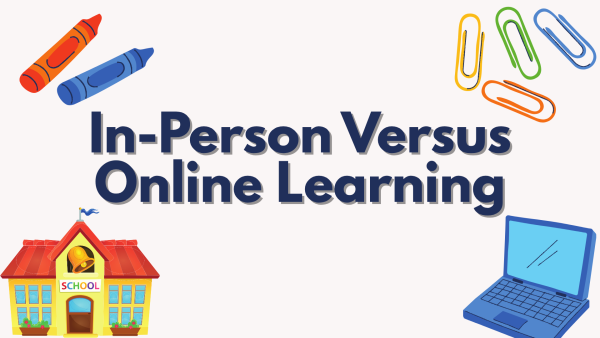Is Intermittent Fasting a Sustainable Diet or Just an Eating Disorder in Disguise?
*Trigger Warning: This article contains potentially triggering topics like restricting, dieting, and eating disorders. If you have or have had any negative experiences with any of these issues please use caution or avoid reading this article.*
With claims of a simple, yet effective way to shed weight, boost mental clarity, and even lower insulin levels, intermittent fasting (IF) has quickly gained popularity through the media, however, not without repercussions. But what is intermittent fasting? At its core, IF involves purposefully planning eating times and going without food for regular intervals. Though there have been studies on the effects of this diet in humans, the majority have been performed on animals or have only been carried out for short periods of time, so most people rely on anecdotal evidence. After its burst in fame, experts have seen a correlation between IF and binge eating disorders. The National Eating Disorders Association (NEDA) categorizes “any new practice with food or fad diets” as possible symptoms or warning signs of binge eating disorder (BED). However, the real question is whether or not IF fits into these characteristics.
One aspect of this diet that makes it so popular is its different methods. The most popular approaches are the 16/8 method, eat-stop-eat, and the 5:2 diet. 16/8, arguably the most widely used, involves fasting for sixteen hours and having an eight hour eating period. Most prefer this form of the diet because of its flexibility. Eat-stop-eat requires a bit more willpower, as you would fast for a full 24 hours once or twice a week. The 5:2 method entails restricting to only 500 calories for two days a week.
Nutritionist Theresa Ripke works to help her clients, especially teens and expecting mothers, develop healthy eating habits that are sustainable, balanced, and fit their lifestyle. Though she likes the idea of IF, “it is not for everyone – especially not for kids, teens, pregnant and breastfeeding moms, and people with low blood pressure,” Ripke said.
Like most other diets, IF should only be followed when it is right for you. Though fasting can also assist with weight loss, “the main idea… is to slow down and be more mindful about what you put into your body,” Ripke said.
In general, most people within the field of nutrition agree that IF should not be used with the intent to lose weight. “If you lose weight, that is great, but it should not be the reason to fast,” Ripke said. Hannah Douglas, a college student majoring in nutrition science, simply stated, “if you are doing it to lose weight, don’t.”
As intermittent fasting grew in popularity, so did the criticism. Many experts began comparing the diet to binge eating disorder because it entails periods of not eating and fitting all the day’s food in a small amount of time. Though some disagree, it is hard not to see how IF could heighten or even kick-start eating disorders.
When asked about fasting’s correlation to eating disorders, the opinions of nutrition specialists truly began to vary. The manager for the Weight Management Department at St. Jude Medical Center, Jen MacDuff, believes that IF can both help individuals healthily lose weight and contribute to disordered eating. “I believe IF is here to stay as a way to eat. I hope that people will do it sensibly and [choose] healthy foods to eat during their feeding time,” she said.
Though it might not outright cause an eating disorder, MacDuff agreed, saying it “can cause one to overeat during the feeding period, which encourages disordered eating” or “further encourage people to not eat.” Ripke, on the other hand, disagreed. “I believe there is a correlation between eating disorders and fasting. Eating disorders are caused [by] other things… it [is] never about how… I get nutrients into my body.. it [is] more like I cannot eat because I will lose my control,” she said. Unlike Ripke, Douglas would not recommend this diet or any other in general. “I am against diets unless you are in a physical condition where you need to eat certain amounts of macronutrients,” she said.
So who is IF right for? In general, those who are under 18, pregnant, breastfeeding, or who have low blood pressure should avoid fasting, especially before consulting a doctor. It is also recommended that you do not try this “unless you have a good relationship with food,” as Douglas said. If you do fit these guidelines and want to try out IF, make sure you “choose what kind of fasting suits you” and “find a time where not much is going on,” as Ripke recommended. You can even try “IF only a few times a week,” as MacDuff suggested to her patients. It is also necessary to make sure you are in the correct mindset and are using this as a way to “slow down and be more mindful about what you put into your body,” not to restrict the food you eat, as Ripke also said.
As long as you maintain a healthy mindset and intentions, intermittent fasting can prove to be a healthy habit to incorporate into your lifestyle.
If you or anyone you know is struggling with an eating disorder please consider these resources:
https://www.nationaleatingdisorders.org/help-support
https://anad.org/education-and-awareness/online-resources/eatingdisorderorganizations/
Your donation will support the student journalists of Huntington Beach High School. Your contribution will allow us to cover our annual website hosting costs.
Thank you for supporting our program!







